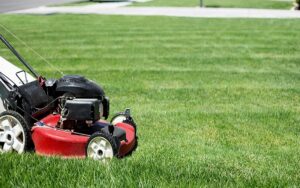The beneficial
Ladybugs eat aphids, green lacewing feed on a wide range of unwanted insects, and praying mantises eat just about anything they can catch.
Creatures like bats and toads are also exemplary insect eliminators.
Bees and wasps are also helpful, as long as they don’t nest on your patio.
1. Use ladybugs and other beneficials
Ladybugs and other beneficials are drawn to nectar sources such as Queen Anne’s lace, lamb’s quarters, goldenrod, and many other flowers.
Other “eye-catching” flowers and herbs include members of the daisy family, such as yarrow, members of the carrot family (dill, parsley, and fennel), and the two cousins, wild and domestic, ordinary mint.
2. Complete the existing populations
Supplement existing populations of beneficials with those available commercially.
You can order ladybug, lacewing and earthworm eggs remotely from suppliers nationwide.
Even beneficial nematodes, which kill caterpillars and maggots by invading their bodies, are available.
Keep in mind that good weather conditions and a ready source of food are important if the beneficials introduced are to remain active and do well.
3. About toads
Toads are among the most efficient insect eaters, but be aware that they can consume both good and bad.
Once you attract them to your garden, they will need water and shelter.
Push pots filled with water and rocks into the ground.
For shelter, just place a broken flowerpot upside down in a shady spot.
4. Place a bowl of water
Make sure the beneficials who visit your garden have enough water to get them through a period of drought.
Place water containers with rocks or sticks to act as perches.
Change the water often to prevent mosquitoes from using it as a hatchery.
5. A natural insecticide
A natural insecticide called neem, derived from a common plant grown in India, Azadirachta indica , stops the development of various pests.
6. Use poultry
Dwarf hens are better than pesticides for controlling insects.
They are busy all day looking for caterpillars, snails and beetles, and don’t dig large holes in the garden like larger chickens often do.
Ducks and geese are also top pest predators.
If you are using poultry, remember to protect tender young plants with a protective net, as poultry may peck up to seeds and plants.
7. Welcome the winter birds
After cleaning your garden in the fall, cultivate the soil in areas where you have had insect problems and let winter birds peck at hidden pests and their larvae.
You can also do this in the spring when many birds need additional food for their young.
In short, some insects are your allies when it comes to gardening. Do not hesitate to take advantage of their benefits.




